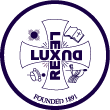Graduate Courses
EDU-500E Internship fall-12 credits, winter-6 credits, spring-12credits
A practicum in a K-8 setting(EDU-501, Practicum). The course includes an understanding of the theory, methodology, and practice of reading, language arts, mathematics, science, social studies, music, art, health and physical education (EDU-502, Methods). It also includes observations and teaching, participation in professional activities normally associated with teaching, participation in supervisory conferences, and action research (EDU-503, Seminar).
EDU-500S Internship fall-12 credits, winter-6 credits, spring-12credits
A practicum in a 6-12 setting (EDU 501, Practicum). The course includes an understanding of the theory, methodology, and practice of content related to the student’s teaching major and minor (EDU-502, Methods). It also includes observations and teaching, participation in professional activities normally associated with teaching, participation in supervisory conferences, and action research (EDU-503, Seminar).
EDU-600.1 Internship 12.0 cr.
Fall. Specific instruction will include methodology, portfolio development, research, and seminar.
EDU-600.2 Internship 6.0 cr.
Winter. Portfolio development, research, and methodology continue.
EDU-600.3 Internship 12.0 cr.
Spring. Specific instruction focuses on curriculum development, assessing learning, portfolio assessment, research, and seminar. Methods for elementary certification continue.
EDU-611 Foundations of Instructional Leadership 3.0 cr.
An investigation into the models of leadership, school organization, leadership strategies, and the climate of current educational reform. The intent is to develop effective educational change agents.
EDU-612 Research Methods & Design 3.0 cr.
An overview of qualitative and quantitative methods of data collection and their application and an introduction to research design. Candidates will design their research projects. A grade of "B" or better is required to enroll in Internships.
EDU-613 Instruction & Technology 2.0 cr.
An advanced look at the integration of technology and instruction, including hypermedia, web page design, and the use of the Internet for instructional purposes.
EDU-621 Professional Portfolio Preparation 3.0 cr.
A culminating course designed to complete the research project and the professional portfolio. The candidates will present their research to the educative community.
EDU-6223 Educational Psychology 3.0 cr.
Winter. A study of the psychological principles applicable to educational theory and practice. Involves observation, tutoring, and other activities in a K-12 setting.
EDU-6300.1 History of Educational Reform 2.0 cr.
Fall. A study of the historical factors as they apply to American public education, including a history of educational reform and the philosophies which generated the reforms.
EDU-6304 Literacy Development 3.0 cr.
Winter. A survey of the development of reading in American schools. Students will be introduced to current theories of literacy development as well as gain functional familiarity with methods of teaching reading at both elementary and secondary levels. Involves observation, tutoring, and teaching in a K-12 setting.
EDU-6305 Literacy in Content Areas 3.0 cr.
Winter. A study of methods and strategies used to implement reading into content area subjects at elementary and secondary levels. Involves observation, tutoring, and teaching in a K-12 setting.
EDU-6349 Current Trends in Education 2.0 cr.
Spring. A study of current trends in American educational reform emphasizing the nature of change in learning organizations; the role of technological innovation; current research on learning; international education systems on educational reform. Specific reform movements will be explored such as: standards-based curriculum; technology-infused classrooms; voucher systems; home schooling; charter schools; site-based management; concept-based instruction and brain-based learning.
EDU-6350 Literature for Children & Adolescents 3.0 cr.
Spring 2005. This course includes criteria for selection, an investigation of genres, and reading works by noted authors. This course does not fulfill the Liberal Arts Core requirement in literature.
EDU-6400 Philosophy of Education 2.0 cr.
Fall. An introduction to the philosophy of education through the study of selected problems and figures who have influenced schooling. Students will develop their own philosophy of education.
EDU-6440 Curriculum & Instruction 4.0 cr.
Summer. A survey of school curriculum and instructional strategies appropriate to K-12 students. Emphasis is placed on identification of the basic principles of teaching and learning and their application for effective instruction. Students will design and teach lessons in K-12 classrooms.
EDU-6450 Diversity in Schools 2.0 cr.
Spring. A study of issues of diversity challenging today's schools, including issues of race, gender, ethnicity, gifted and talented education, learning modalities and difficulties, and classroom management issues.
EDU-694 Independent Study 3.0 cr.
A student-designed study intended to enhance an area of expertise.
EDU-699T.1 Special Topics: Advanced Curriculum Theory & Design 3.0 cr.
This course examines the history of curriculum development in American education and explores alternative models of curriculum design. Emphasis will be placed upon the role of teacher created curriculum within the context of current educational reform initiatives.
EDU-699T.2 Special Topics: Reading in Critical Pedagogy 3.0 cr.
An introduction to the basic concepts and practices of critical pedagogy. Students will examine the theoretical and philosophical underpinnings of critical pedagogy. Readings will lead to an investigation of the extent to which critical theory, postmodernism, constructivism and feminism are intersecting traditions that have informed critical pedagogy. In addition, students will explore whether or not critical pedagogy is present in their own practice.
EDU-699T.3 Special Topics: Action Research 3.0 cr.
This course is designed to provide MAT candidates with the knowledge and skills necessary to conduct research within a classroom setting. Students will be introduced to the elements required to begin an action research project, including purpose/rationale, writing style, literature reviews, online resources, data collection, and components of an action research project. Students will also identify ethical issues related to research, including basic theory and practice, professional codes of ethics, confidentiality, and research using human subjects. The purpose of statistics, as applied to educational research, is introduced; inferential and descriptive measures are examined and methods for evaluating and analyzing data are discussed.
